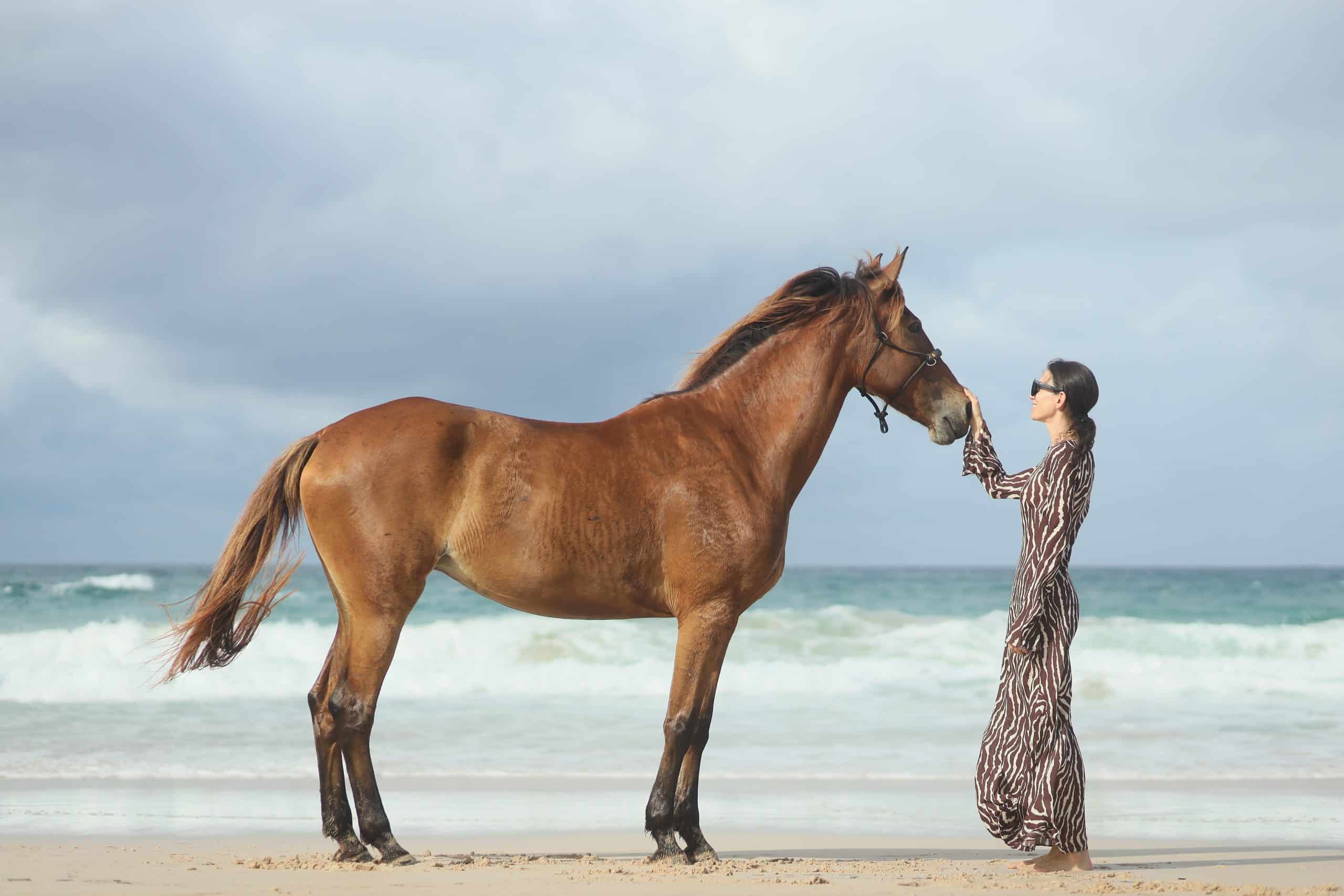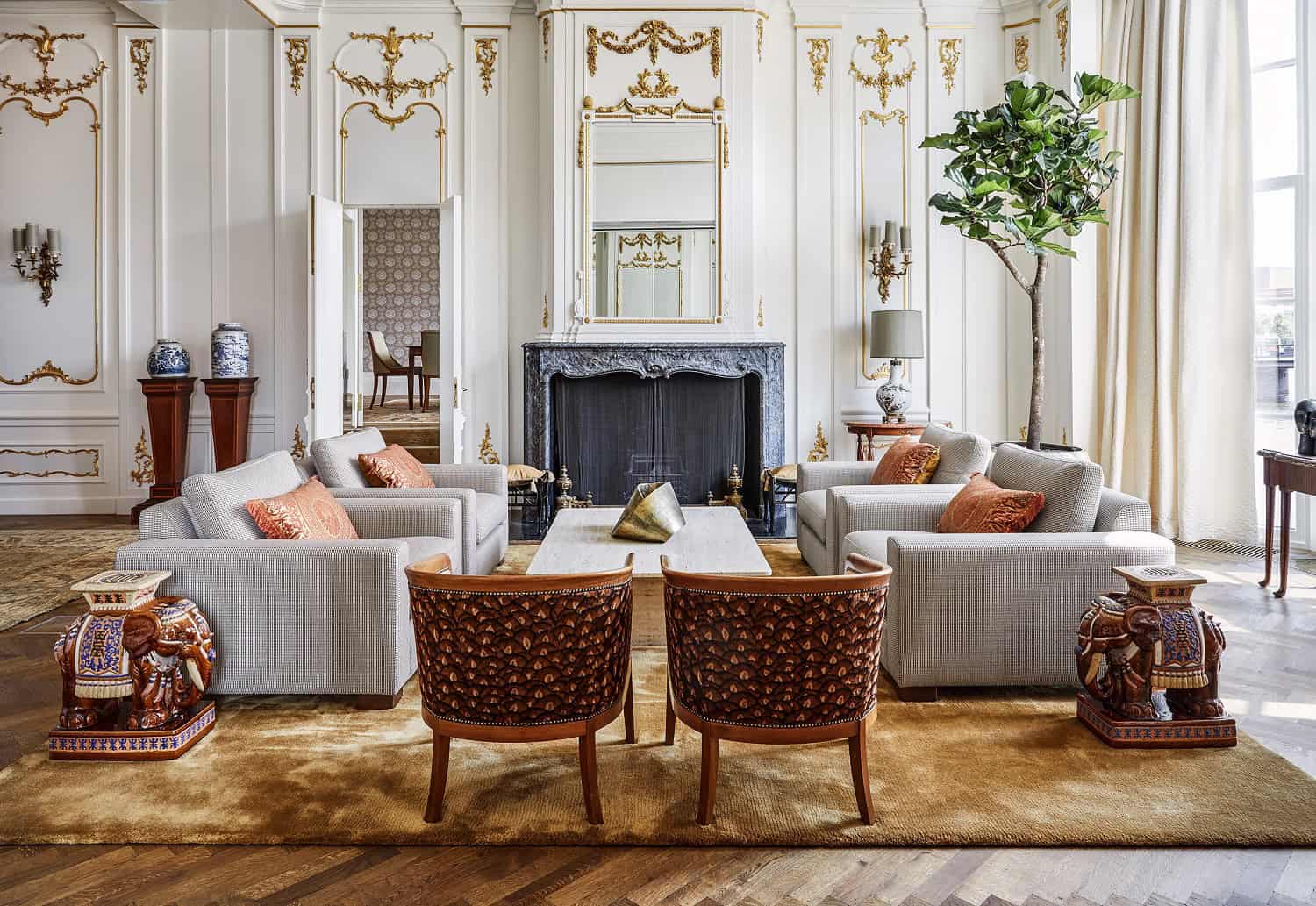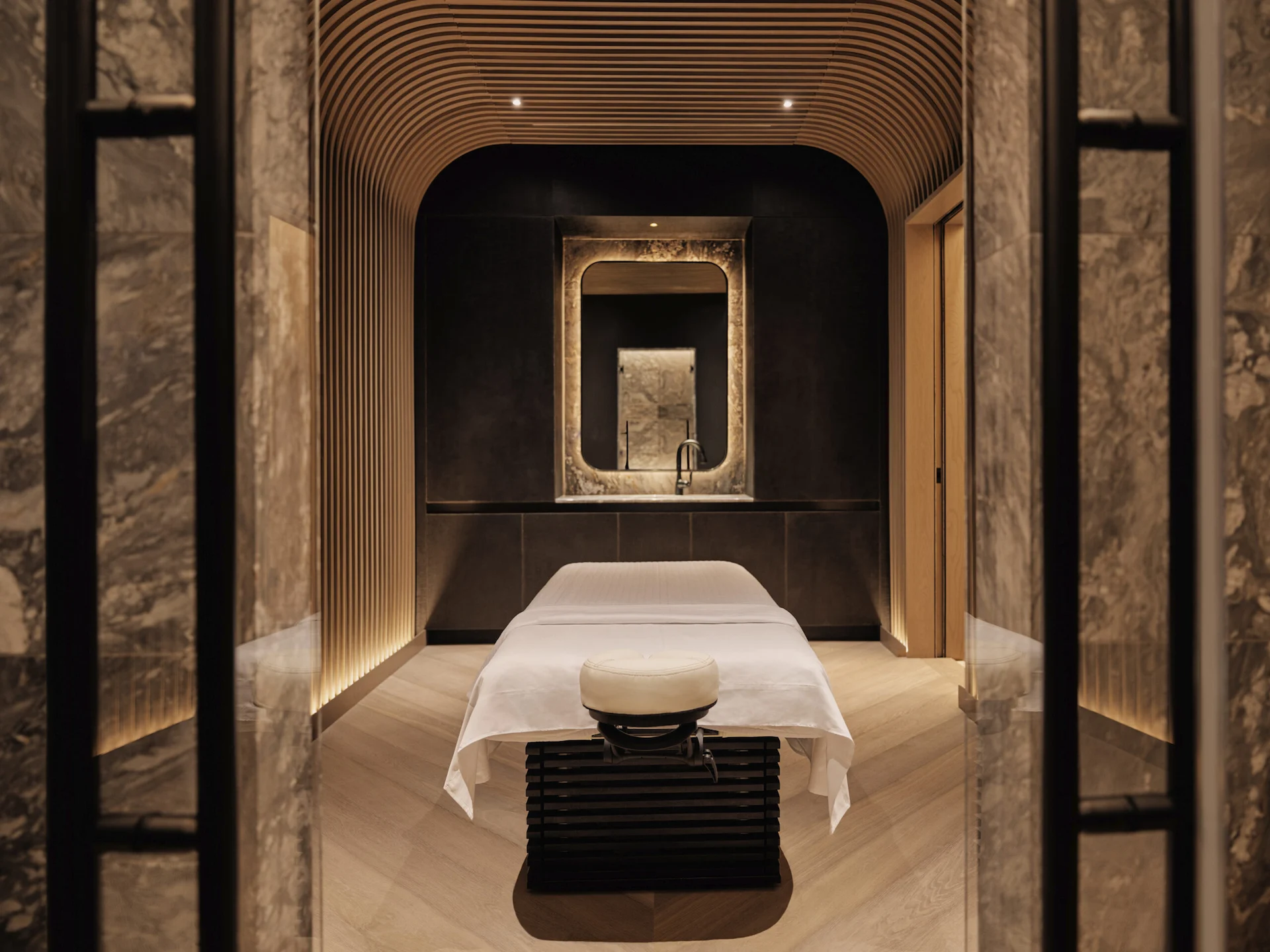Perhaps it’s the dense forest encircling the grounds that inspires the mystical quality in the air, or the phone-free rules from the moment you enter the resort that let you know that Vana is a world away from wherever and whatever you’re used to; whatever it is, the transformation begins slowly and subtly the moment you cross the threshold. Deeply connected with the nature that surrounds it, Vana Retreat in India offers luxury wellness retreat programmes that blend Eastern healing modalities like Ayurveda, Traditional Chinese Medicine (TCM) and Tibetan therapies for a unique approach to stress, weight loss and lifestyle enhancements. Compare Retreats Editor and CCO Rebecca Cairns checks into the exclusive resort for a relaxing long weekend.
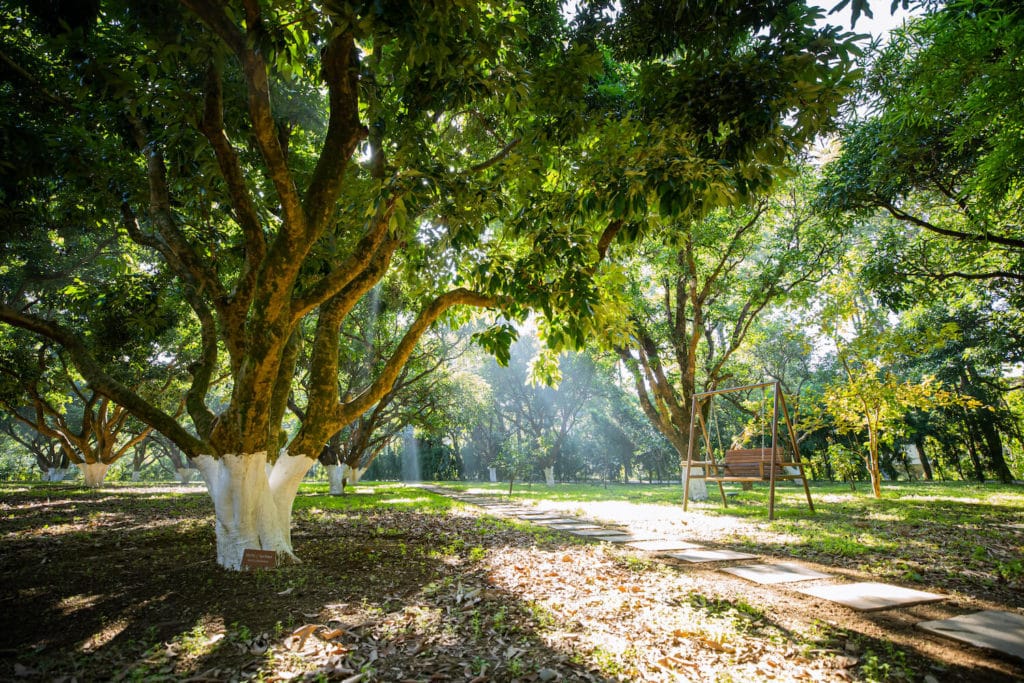
Tranquil Forest Location
The tranquil forest surrounding the walls of the resort make it hard to believe that just five minutes away is the bustling town of Dehradun. Located in the north of India in Uttarakhand, Vana is a 45-minute drive from Dehradun Airport (about an hour’s flight from Dehli). The drive from the airport winds through the hills and valleys of the lower Himalayan foothills, down narrow one-lane roads and across stone bridges fluttering with Tibetan prayer flags.
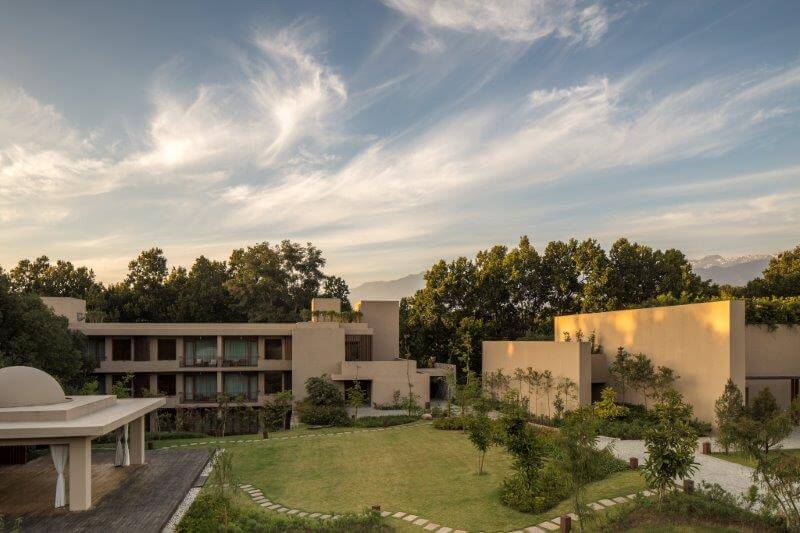
Modern Minimalist Resort
Surrounded by sal forests, Vana’s contemporary architecture both evokes and embraces nature. Paths wind across the 20-acres of orchards, gardens and forest, organically connecting the main resort with its three guest residences.
Modern minimalism is the name of the game here. Everything is pristine, in chic shades of beige and white that ooze calm and relaxation. Natural light and natural materials, like bamboo flooring, wood furniture, stone paths and walls, and organic linen dominate the interior decor both in the communal areas and the rooms and suites.
See also: 5 Yoga Retreats In India To Find Your Inner Peace
Guest’s first glimpse of the resort is through the awe-inspiring Kila. Sweeping, triple-height ceilings give the Kila a temple-like ambience: it’s the kind of place where you feel obliged to lower your voice. It’s the heart of the resort, and houses the two restaurants, Anayu and Salana (the main dining room), the Bodhi tree (a multi-purpose yoga and meditation studio), and the wellness centre for consultations. It’s also where you’ll find ‘Sketchbook’, the computer room, a key part of Vana’s new Wellness Sabbatical programme.
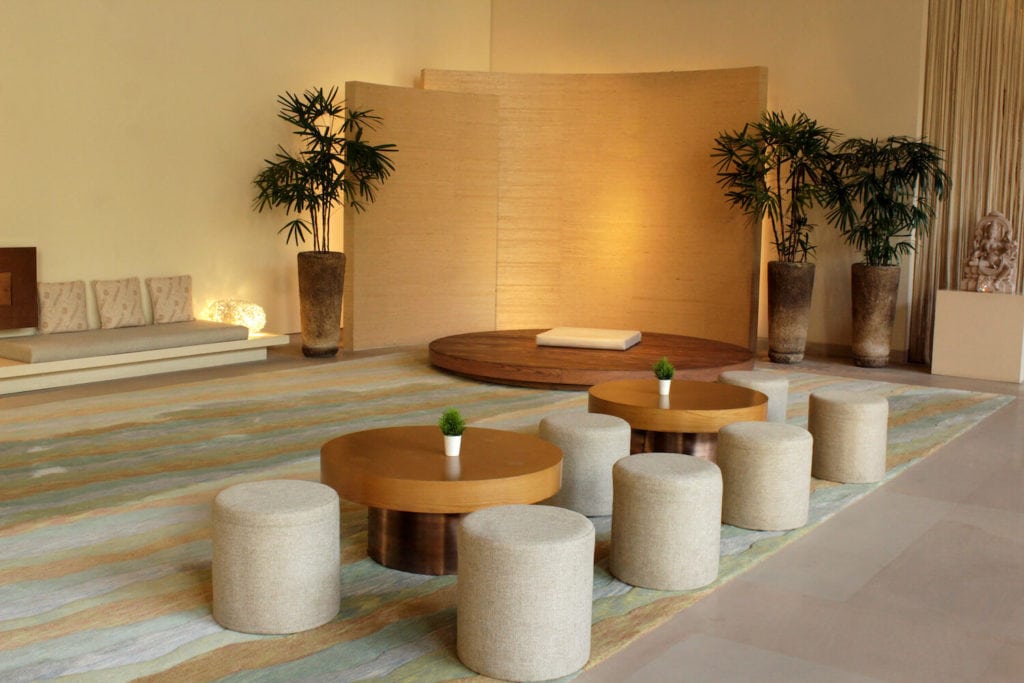
Equipped with an indoor and outdoor pool, as well as a comprehensive gym, you won’t be short of workout facilities while staying at Vana. The yogasala, which has both an indoor studio and outdoor deck, is set among one of the resort’s three orchards.
Vana has a strict no-technology rule throughout the resort: phones and laptops can only be used in the privacy of your room, or at Sketchbook, the designated work office. While it took a while to adjust to not snapping pictures of everything I saw, it was also extremely refreshing to have time to myself without checking my phone, and also knowing when I was wandering around the resort that everyone else was doing the same thing. There’s no pressure to look perfect all the time, and people are far more relaxed, having hushed conversations or enjoying time to read and relax.
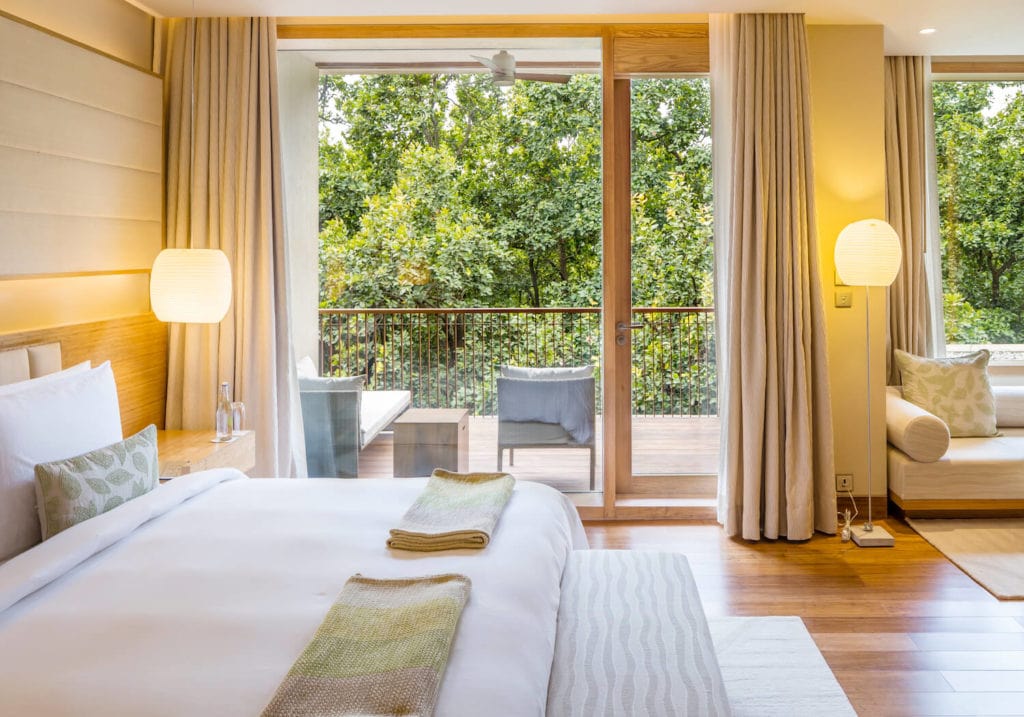
Eco-Friendly Accommodation
The accommodation is divided between three buildings, with four levels of room: Garden and Forest Rooms, Bodhi Suites and Forest Suites, the duplex-style Casas, the Esteva Suite, and the Vana Suite (pictured above).
I stayed in a Garden Room, which had a king-size bed, large closets, and a cosy living space with a work desk and generous balcony. Trees were clustered in front of my balcony, so each morning I woke up to sunlight streaming between the leaves. The ensuite included a large bathtub and separate shower, with Vana’s own brand amenities. As a solo traveller on a short stay, the room was a perfect size, but for couples staying a bit longer, it’s probably worth upgrading to a suite to enjoy a little more private living space.
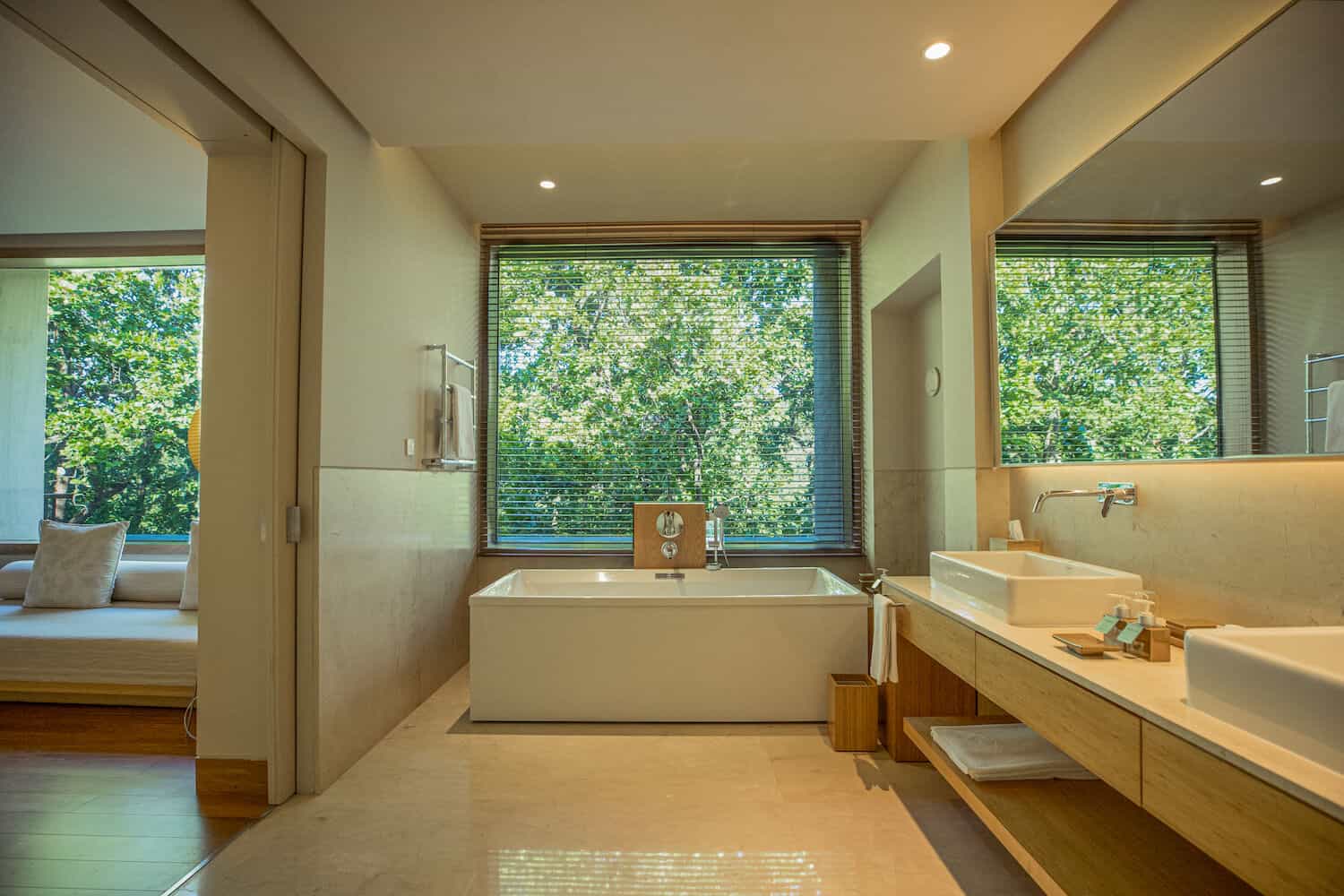
The resort places a big emphasis on sustainability, and it’s evident throughout the resort from the reusable toiletries bottles to the canvas welcome pack. The resort uses energy-efficient LED lighting and was the first retreat in India to achieve LEED Platinum status in 2015 for its environmental design.
While Vana is an adults-only resort, families with young children might consider the Casa as an option, where the private deck and lawn along with the pantry and dining space gives flexible living options.
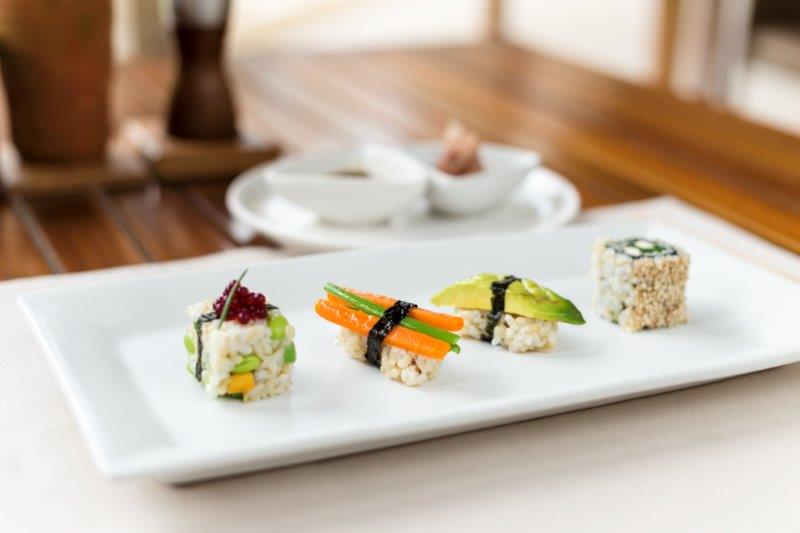
Creative Calorie-Counted Nutrition
Vana proves that eating well doesn’t mean missing out on delicious fine dining. Its contemporary wellness cuisine focuses on predominantly plant-based cuisine, but with some fish and poultry dishes on the menu, every meal offers a selection of both Indian and international dishes. The menu highlights dietary inclusions for each dish, including gluten, egg, nuts, sugar, dairy, and whether it is raw or vegan, so diners can choose what suits them.
The Salana dining room where I ate all my meals offered both private two to four-person tables, or seating at larger communal tables, giving solo travellers the option to socialise if they want. Breakfast and lunch are both served buffet style, with the option to additionally order off the menu at breakfast. A selection of homemade breads and pastries, fresh fruits and salads, and cheese awaits, with six hot dishes and a soup also served at lunch.
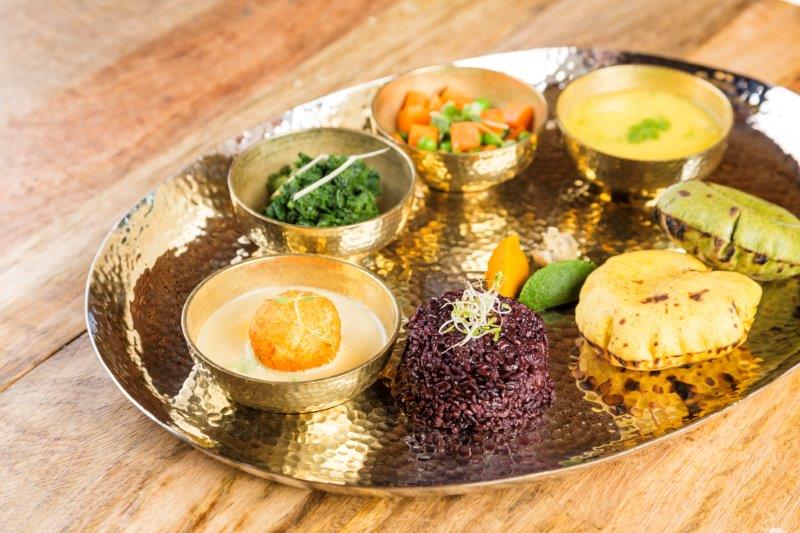
At dinner, guests choose from starters, mains and desserts for a three-course meal. Every item is calories counted, with macros (and fibre) by the gram, so those who are particularly fastidious about their eating habits will find Vana more than accommodating. Dishes like the flaxseed tart with cashew basil sauce, or raw chickpea and green pea kofta showcase the diversity and creativeness with which the kitchen at Vana approaches dining. Those with a sweet tooth won’t be disappointed either, with desserts like banana tiramisu, or my personal favourite, the sweet jaggery balls (a traditional Indian snack) available at lunch.
The menus are designed to be low salt, low oil, and avoid any refined ingredients—oils, sugars, or grains—along with processed foods. Portions are small, though I found myself perfectly content with the sizing, enjoying a large breakfast and lunch and a smaller dinner. The menu invites those with larger appetites to order multiple portions, so you won’t go hungry here.
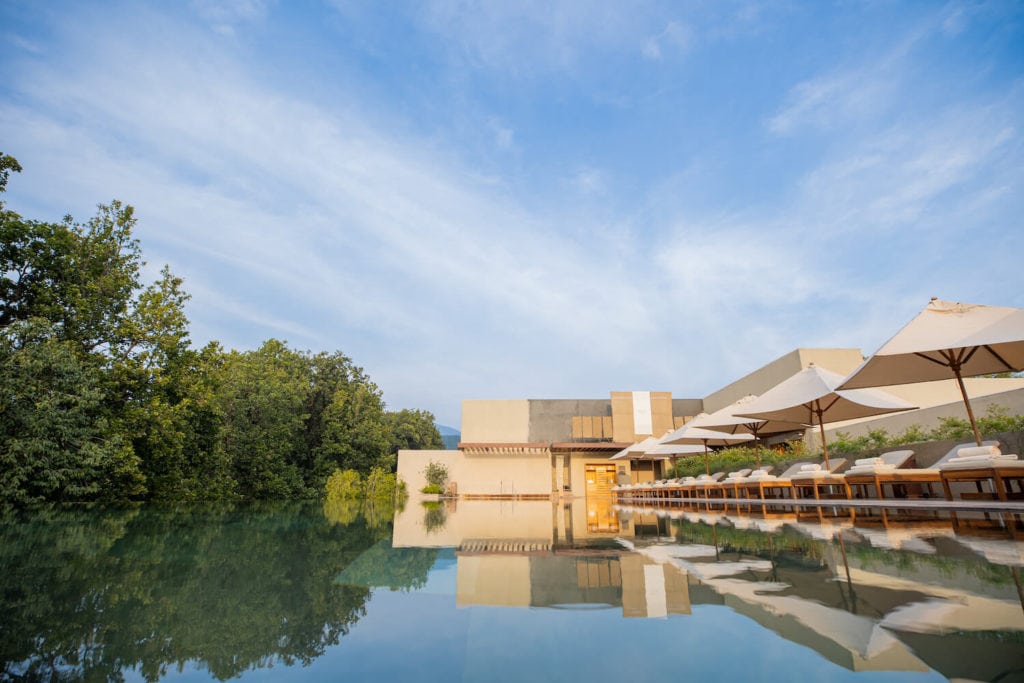
Holistic Wellness Offerings
Vana takes a modern approach to ancient healing, and incorporates the traditional Indian medicine system Ayurveda with Traditional Tibetan Medicine, known as Sowa Rigpa, along with other practices and alternative therapies like TCM. Guests can choose an à la carte retreat, or dedicated programme in Ayurveda Panchakarma or weight loss. All retreats at Vana include:
- Unlimited access to the activities on the weekly schedule, like yoga, and meditation
- Arrival and departure wellness consultations
- All cuisine (including breakfast, lunch, afternoon tea and dinner)
- Private treatments or specialist consultations based on one to three ‘wellness weights’ per night per guest
- A traditional Indian kurta to wear at the resort
- Return airport transfers from Dehradun Airport
Retreat programmes, short and long, begin with a consultation with the Ayurvedic doctor, who will give you a detailed analysis of your dosha. Each person is comprised of three ‘doshas’, and the goal of Ayurveda is to bring them into equilibrium; however, most people are generally more one than the others. In my case, I had too much ‘Pitta’ and was prescribed three days of rest and relaxation with an emphasis on meditation, gentle yoga, and bringing my stress levels down.
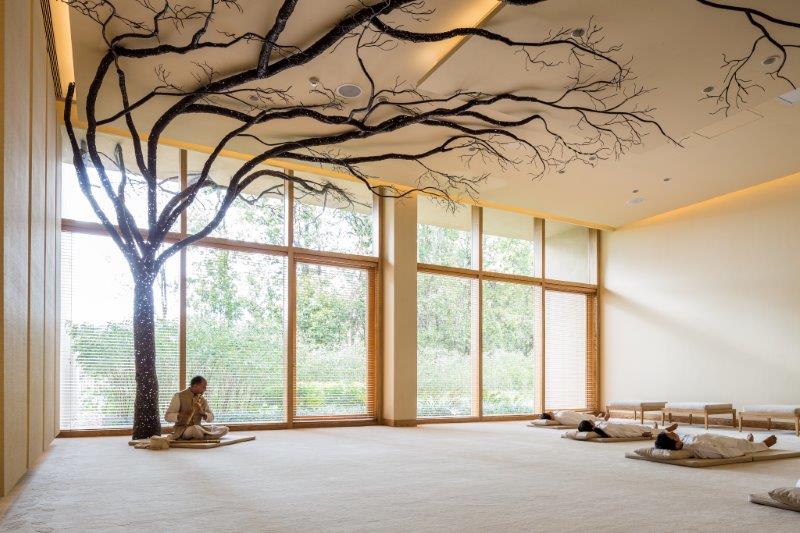
Each day included one spa treatment at either the Ayurveda Centre or Sowa Rigpa Centre, and the option to join in with the daily activities schedule. I was given recommendations on which sessions to join, but unless you’re on a strict weight loss programme, guests are given free rein to do as they wish. Each day included a range of yoga and meditation, and weekly activities included fitness sessions, cooking classes, talks and discussions, and hikes, which happened off-resort. An average day for me looked something like this:
07:00 Pratah Yoga
08:00 Breakfast
09:30 Spa Treatment
11:30 Madhyan Yoga
12:00 Lunch and free time
14:00 Yoga Nidra
15:30 Raag Therapy (flute meditation)
16:00 Free time
17:15 Sandhya Yoga
18:00 Dinner
21:00 Bed
The Yoga Nidra was my favourite session, and an absolute must if you’ve never tried it before. Yoga Nidra is yogic sleep, which involves completely relaxing the body and entering a state of conscious deep sleep. It’s incredibly relaxing and rejuvenating, and I always came out of the Yoga Nidra sessions full of ideas and energy.
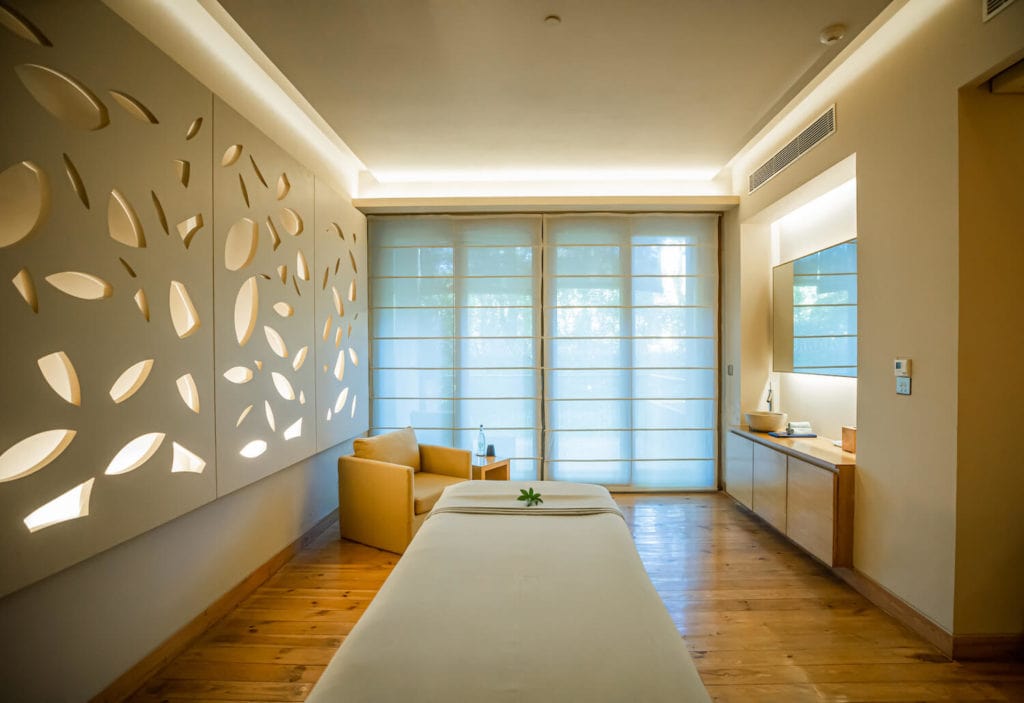
While at Vana, I had three treatments. The Abhyanga at the Ayurveda Centre was different from others I’d experienced: instead of lying down, the first half of the treatment was done sitting up. I requested not to have the oil in my hair, as the skin on my face tends to react badly to oil, but I still enjoyed the dry face and head massage.
See also: The Best Luxury Ayurvedic Retreats In India
My other treatments were both at the Tibetan healing centre, Sowa Rigpa: this unusual and difficult to find ancient practice blends Ayurveda, TCM and Buddhism together to focus on the emotions and the mind. I had the Ku nye, and Hor gyi mesta treatments: I’d never experienced a massage like either of them, which focused on stimulating the nervous system using herbal poultices and oils to tap into energy points. While the Abhyanga was a deeply relaxing experience, the latter two massages were both lighter in touch but deeper in pressure points, and I left feeling lighter than a feather.
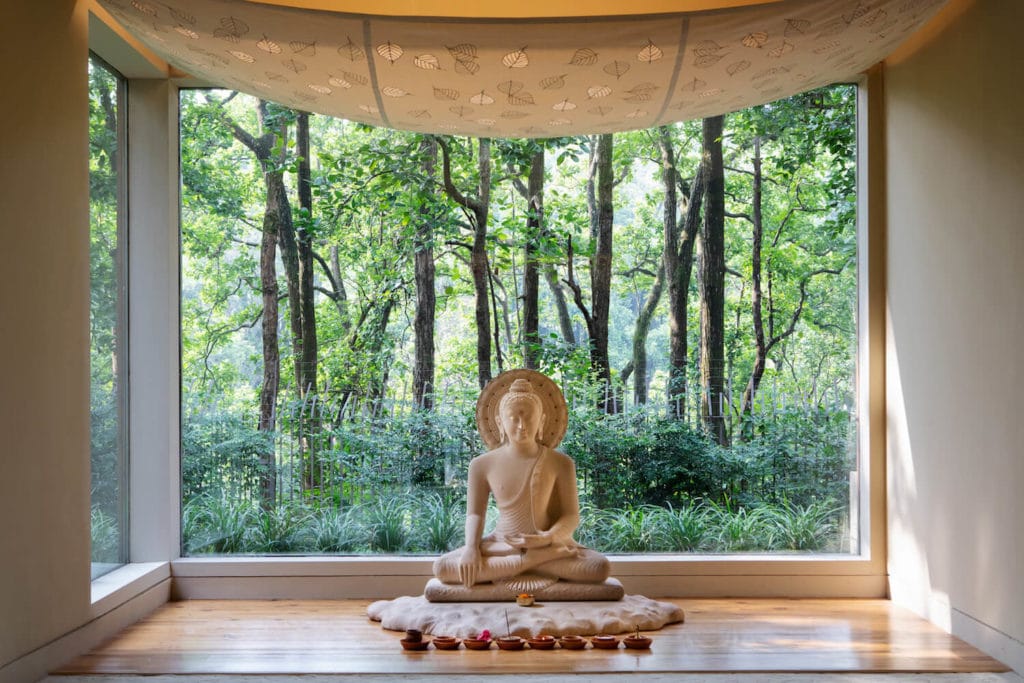
Results
Expect to feel like the world is a little lighter. Vana is brimming with positive energy, and it’s difficult not to absorb some of that during your stay. The doctor advised I eat vegetarian meals in the evening, and my sleep improved hugely. I felt less bloated and more energised after my three-day stay at Vana, and loved that the Ayurvedic doctor I had my consultation with continually checked in with me, saying hello in the dining room or catching me between yoga sessions to ask how I was doing.
Not being attached to your phone all the time also gives you a bit more perspective on the importance and urgency of things: I would never have considered myself someone who is addicted to technology, but it was enlightening to see all the times I went to reach for my phone, and couldn’t. I learnt to be bored, or entertained with my own thoughts, and not need to constantly distract myself with mindless scrolling every time I wasn’t immediately occupied—it’s another habit I’ve brought home with me, and being conscious of when and why I’m using my phone has been so helpful to set boundaries.
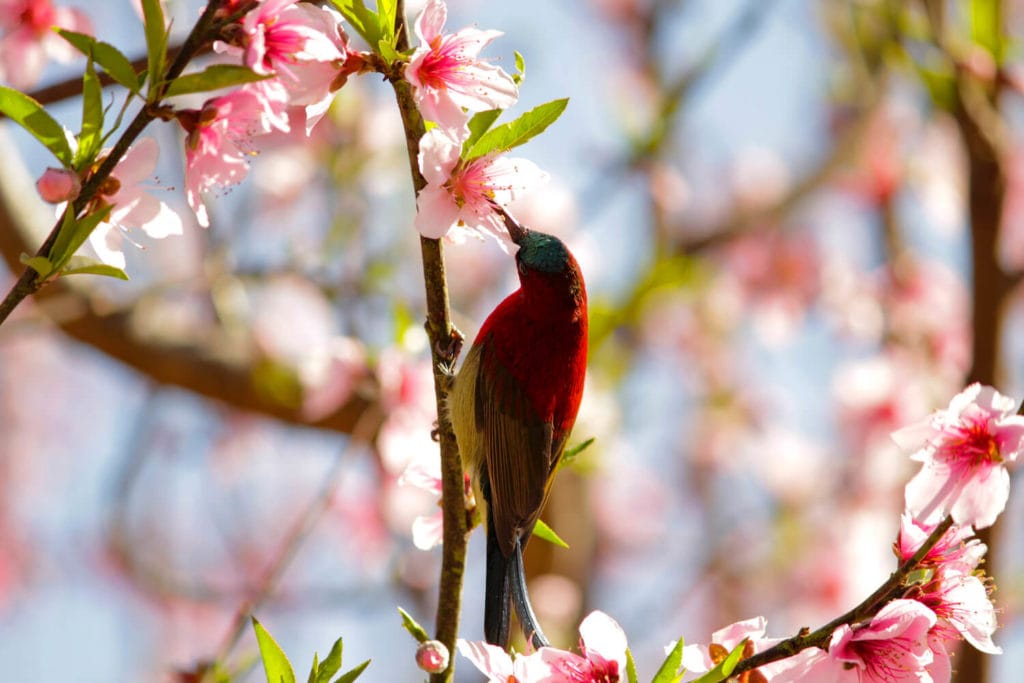
We loved…
While the resort feels compact, the grounds are sprawling, and taking a walk through the orchards at sunset is a beautiful way to end the day. Plus, when as the sun is going down, the mischievous monkeys who live in the grounds are usually on the move from one hang out spot to another: it’s a such a rare pleasure to just observe nature, and the wildlife at Vana offers quite the show.
Our Insider Tip…
If you’re looking for some secluded alone time in a one-of-a-kind place, don’t miss the meditation cave beneath the Sowa Rigpa Centre in residence two—it’s not exactly a secret, just a little-known corner of the resort that offers a truly unique location to meditate, read, or just get lost in thought.
Contact bookings@compareretreats.com to book your luxury wellness retreat

